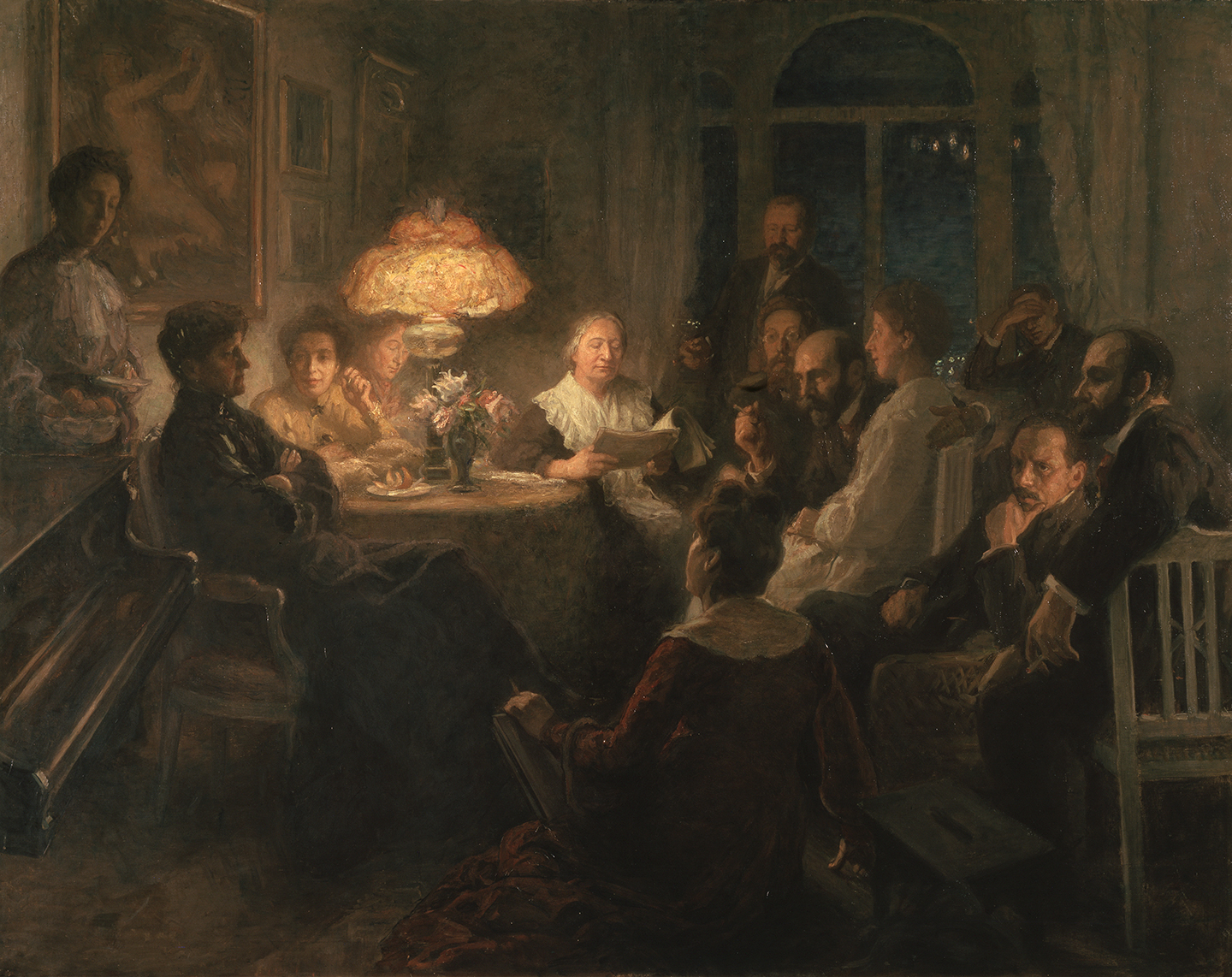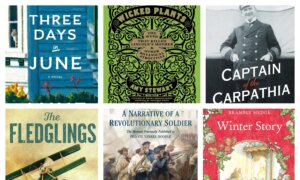
Laughter and Joy
Some poets—and some of us old-timers as well—prefer comedy to drama in this stage of our accumulated decades. This inclination is understandable, for the wise among the aged know the great benefits derived from laughing at themselves and their own eccentricities, and at the world around them.

Old man pushing seventy,
In truth he acts like a little boy,
Whooping with delight when he spies some mountain fruits,
Laughing with joy, tagging after village mummers;
With the others having fun stacking tiles to make a pagoda,
Standing alone staring at his image in the jardiniere pool.
Tucked under his arm, a battered book to read,
Just like the time he first set out to school.
Such unrestrained behavior among old folks is rare, though some of us cut loose every once in a while when a lifetime of decorum gives way to the less inhibited joys of childhood. Lu Yu’s old man reminds the rest of us to relish life and laughter in spite of our years.
Cautionary Verse
Like bell buoys ringing out as night and fog roll in, other poems warn against the piling up of regrets that may accompany us into old age. From Dylan Thomas’s “Do Not Go Gentle Into That Good Night,” many people remember the poem’s signature line, “Rage, rage against the dying of the light,” yet fail to connect that rage to the remorse portrayed in stanzas like this one:
Grave men, near death, who see with blinding sight
Blind eyes could blaze like meteors and be gay,
Rage, rage against the dying of the light.
Those who rage in this poem are the dying who depart this life heavy with remorse and contrition, having left unfulfilled their potential.

When you are old and grey and full of sleep,
And nodding by the fire, take down this book,
And slowly read, and dream of the soft look
Your eyes had once, and of their shadows deep;
How many loved your moments of glad grace,
And loved your beauty with love false or true,
But one man loved the pilgrim soul in you,
And loved the sorrows of your changing face;
And bending down beside the glowing bars,
Murmur, a little sadly, how Love fled
And paced upon the mountains overhead
And hid his face amid a crowd of stars.
Many of us who are “old and grey and full of sleep” may read this poem and recall those times when, like the woman in this poem, we failed in some critical way or moment to return the affections of a spouse, lover, friend, or child. This poem also reminds us that the old and the young recollect the past quite differently, with the former remembering faces, moments, and events from long ago as if they happened only yesterday.
Lost Time

The name of the author is the first to go
followed obediently by the title, the plot,
the heartbreaking conclusion, the entire novel
which suddenly becomes one you have never read, never even heard of,
as if, one by one, the memories you used to harbor
decided to retire to the southern hemisphere of the brain,
to a little fishing village where there are no phones.
Long ago you kissed the names of the nine muses goodbye
and watched the quadratic equation pack its bag,
and even now as you memorize the order of the planets,
something else is slipping away, a state flower perhaps,
the address of an uncle, the capital of Paraguay.
Whatever it is you are struggling to remember,
it is not poised on the tip of your tongue
or even lurking in some obscure corner of your spleen.
It has floated away down a dark mythological river
whose name begins with an L as far as you can recall
well on your own way to oblivion where you will join those
who have even forgotten how to swim and how to ride a bicycle.
No wonder you rise in the middle of the night
to look up the date of a famous battle in a book on war.
No wonder the moon in the window seems to have drifted
out of a love poem that you used to know by heart.

To Strive, To Seek, To Find, To Live
In “Ulysses,” Tennyson reminds us that these vestiges of youth can act as elixirs of hope and ambition for the old. Having returned from his long odyssey and now sharing command of his kingdom with his son, Ulysses ruminates on the tedium of the final chapters of his life: “How dull it is to pause, to make an end,/ To rust unburnish‘d, not to shine in use!/ As tho’ to breathe were life!”
Come, my friends,
‘T is not too late to seek a newer world.
Push off, and sitting well in order smite
The sounding furrows; for my purpose holds
To sail beyond the sunset, and the baths
Of all the western stars, until I die.
It may be that the gulfs will wash us down:
It may be we shall touch the Happy Isles,
And see the great Achilles, whom we knew.
Tho‘ much is taken, much abides; and tho’
We are not now that strength which in old days
Moved earth and heaven, that which we are, we are;
One equal temper of heroic hearts,
Made weak by time and fate, but strong in will
To strive, to seek, to find, and not to yield.
Here is a rallying cry against the petty infirmities and sadness of old age. If we are in reasonable health, we needn’t take to ship and go to sea to understand that we have yet the time and opportunity to set right any hurts and wrongs we have done. Rather than raging against the dying of the light, we still possess the ability to make our frail deeds dance in a green bay. Rather than cursing our peccadilloes and minor infirmities, we can laugh at them.










